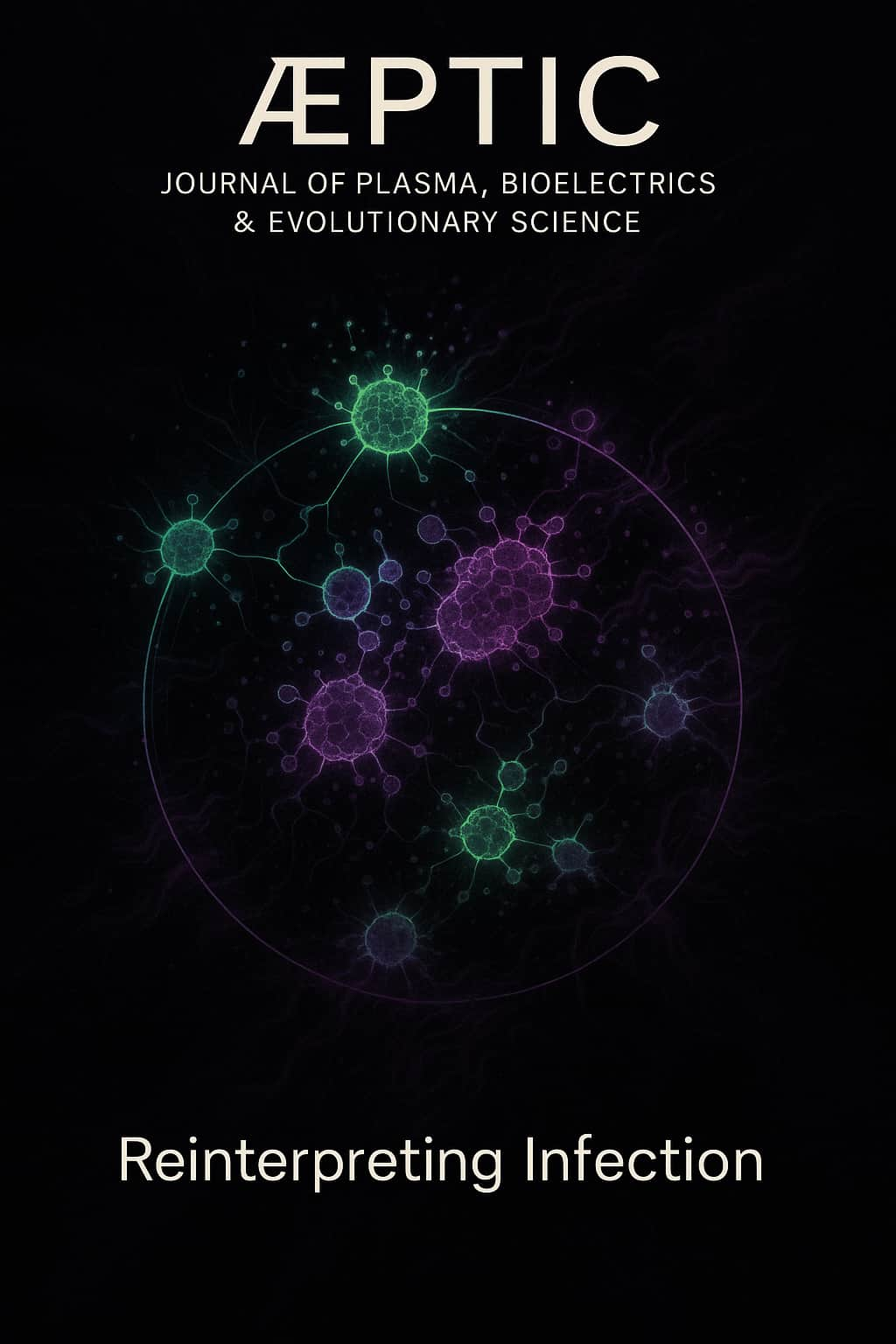Abstract
Traditional models of infection define disease as the result of external pathogen invasion and subsequent immune response. However, this paper proposes an alternative framework: that infection emerges from topological desynchronization within an organism’s endogenous phase-field system. Within this model, bacteria are not treated merely as pathogenic agents but as carriers of quantum-resonant vibrational data, integrated into a broader biological information architecture.
We introduce a phase-field model wherein the interaction between microbiota, neuroendocrine signals, and cellular entrainment mechanisms forms a coherent topological network. Infection, then, arises when this system encounters frequency mismatch, phase collapse, or maladaptive resonance conditions. Such breakdowns manifest clinically as inflammation, immune overactivation, or metabolic dysregulation—not necessarily as a direct result of microbial virulence.
This perspective allows a reinterpretation of phenomena such as long incubation periods, asymptomatic carriers, or post-infection syndromes as phase-state transitions rather than binary infection outcomes. By modeling infection as an information-level collapse in topological synchronization, this work opens new frameworks for non-pharmacological interventions, early detection via vibrational diagnostics, and redefining vaccine function as anticipatory entrainment.
We conclude that disease should be understood not only in molecular or immunological terms, but in terms of phase dynamics, topological memory coherence, and resonance stability within the biological field.

This work is licensed under a Creative Commons Attribution 4.0 International License.
Copyright (c) 2025 Doha Lee

